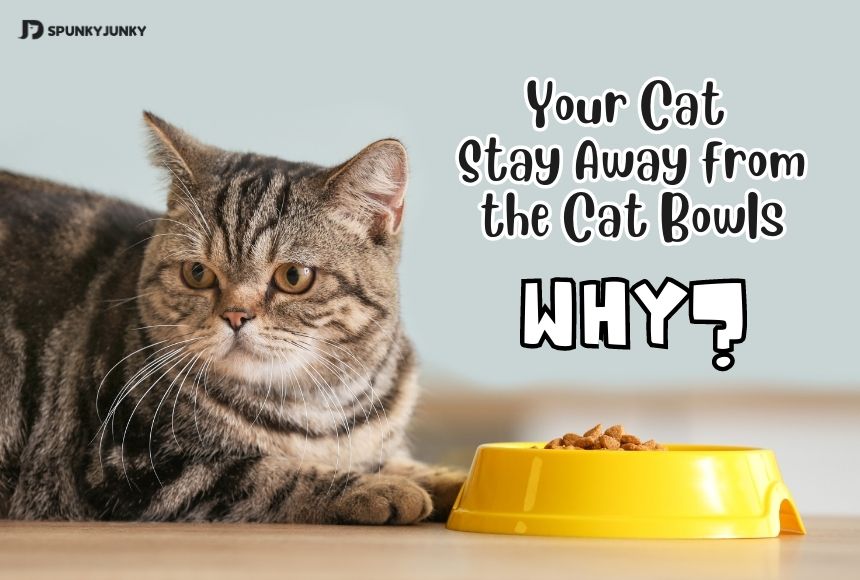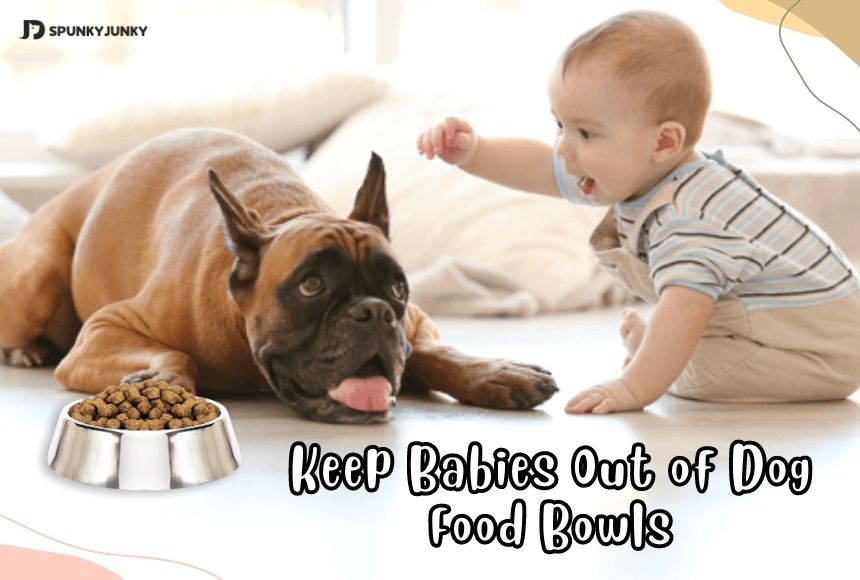Are you confused by your cat's behavior away from the cat food bowl? Want to know what's the reason behind it? Well, you've come to the right place.
Get ready to explore the fascinating realm of cat behavior in this article. We'll dive deep and offer you 5 possible reasons why your feline friend might be shying away from their food bowl. From a penchant for freshness to potential health concerns, we'll uncover the mysteries behind this intriguing behavior.
So if you're eager to learn more about your cat's dining habits and create a more enjoyable dining experience for them, keep reading!
1. Preference for Fresh Food

Cats have an amazing sense of smell that greatly affects their food choices. They have a preference for fresh, fragrant foods. Think about how you'd feel eating food that's been sitting out all day—it loses its taste and becomes dull. Similarly, if cat food sits out for too long, it can lose its appealing scent, making it less interesting to cats.
To meet your cat's love for freshness, try offering them freshly prepared meals or small treats throughout the day. This not only keeps their food tasty but also lets them enjoy different flavors and tap into their natural hunting instincts. Just as we enjoy freshly cooked dishes, cats savor delicious, aromatic meals. By giving them what they crave freshness you can make mealtime a delight for your feline friend.
If you're new to making homemade cat food, our weekly recipe series is a great resource, full of tasty ideas to explore.
2. Sensitivity to Cat Bowl Material

Surprisingly, the type of bowl you choose for your cat can make a big difference in their mealtime enjoyment. Like our favorite dishes, cats might have strong feelings about bowl materials like plastic or metal. Even though these bowls are sturdy and easy to clean, they can sometimes affect the taste or smell of the food, which picky cats might not like.
Imagine this: You make a yummy meal, but when you use a metal spoon, there's a strange metallic taste. Would you want to keep eating with that spoon? Probably not. Similarly, some cats might link changes in taste or smell caused by plastic or metal bowls to their food, making them avoid the bowl altogether.
A smart solution is swapping out plastic bowls for ceramic or stainless steel materials. These materials are less likely to mess with the food's taste and smell, giving your choosy cat a more authentic and enjoyable eating experience. By paying attention to how your cat reacts to different bowl materials, you can uncover their hidden preferences and make mealtime a treat for their sensitive taste buds.
If you're curious about ceramic cat bowls, let me introduce you to SpunkyJunky's ceramic cat bowls. They're made from safe, odorless food-grade ceramics and come in various colors and styles to suit your taste.
3. Negative Associations

Cats are known for being emotionally sensitive. If they've gone through a tough situation near their food bowl, they might remember it every time they're around that spot, leading to them avoiding it. For instance, if your cat got scared by a loud noise or had a not-so-pleasant run-in with another pet near their bowl, they could link those bad experiences to that area.
But don't worry. There's a way to help them out. You can move the food bowl to a calm and quiet spot, far from anything that might stress them out or distract them. This small change creates a peaceful environment where your cat can feel relaxed while eating. It's like hitting the reset button on their feelings about the food bowl, turning mealtime into a calm and enjoyable part of their day.
4. Medical Problem or Discomfort

Sometimes, if a cat doesn't want to eat from their food bowl, it could mean there's a health issue. Dental troubles like gum disease might make chewing and swallowing painful. Also, tummy problems or food allergies can make them feel uncomfortable after eating, so they steer clear of the bowl.
Remember, it's always smart to talk to your vet if you see your cat avoiding their food. A vet check can figure out if there's a health problem and make sure your furry friend gets the right help and care they need. Your cat's health is super important!
5. Dirty Cat Bowl

Keeping your cat's food bowl clean is critical to their health and appetite. A dirty cat bowl can create a host of problems that may keep your cat away from it.
Cats are naturally clean animals, and their sense of smell is also very sensitive. If their food bowl is dirty or has leftover food particles stuck to it, it can emit a bad smell that will deter your cat from getting near it.
Plus, dirty cat bowls can be a breeding ground for bacteria and other harmful microbes. These can contaminate your cat's food and cause digestive problems or infections. Cats are sensitive animals, and if they associate a food bowl with discomfort, they may start avoiding it altogether.
To combat this, it is imperative to establish a regular cleaning routine for your cat's food bowl. After each meal, wash the bowls thoroughly with warm water and a mild dish soap to remove all food residue and make sure there are no lingering odors. If you want to learn how to clean cat bowls more effectively, our other article "The Risks of Dirty Cat Food Bowls and How to Clean Them" can help you.
Conclusion
In summary, figuring out why your cat is avoiding their food bowl is super important for their health and happiness during mealtime. By considering things like their food preferences, how different bowl materials feel to them, any bad memories, possible health issues, and bowl cleanliness, you can make their meals better.
If you found this article useful, check out more of our cat-related tips. You can learn how to make your own cat food or how to clean cat bowls effectively.
Taking care of your cat's food needs and making sure they have a comfy place to eat will not only make your bond stronger but also keep them healthy. So, let's keep on learning, discovering, and giving our cats the best care they deserve.






